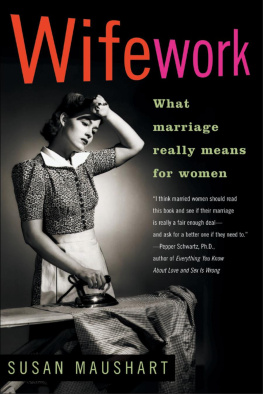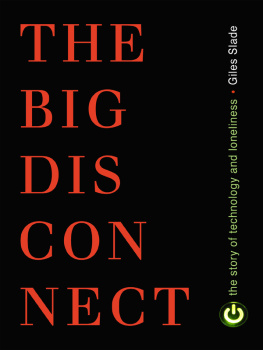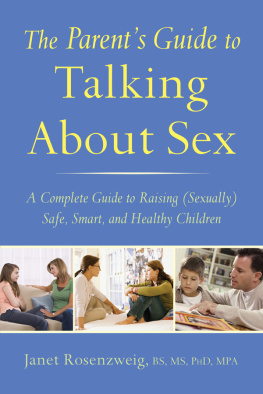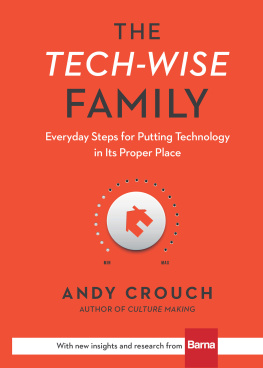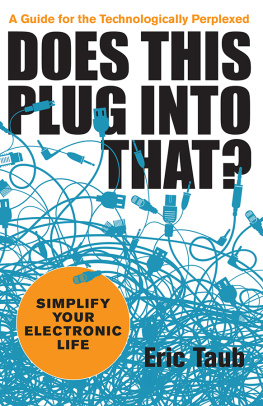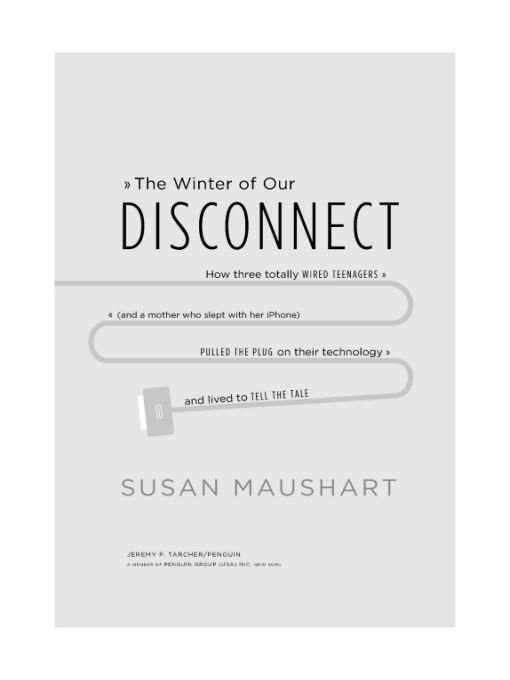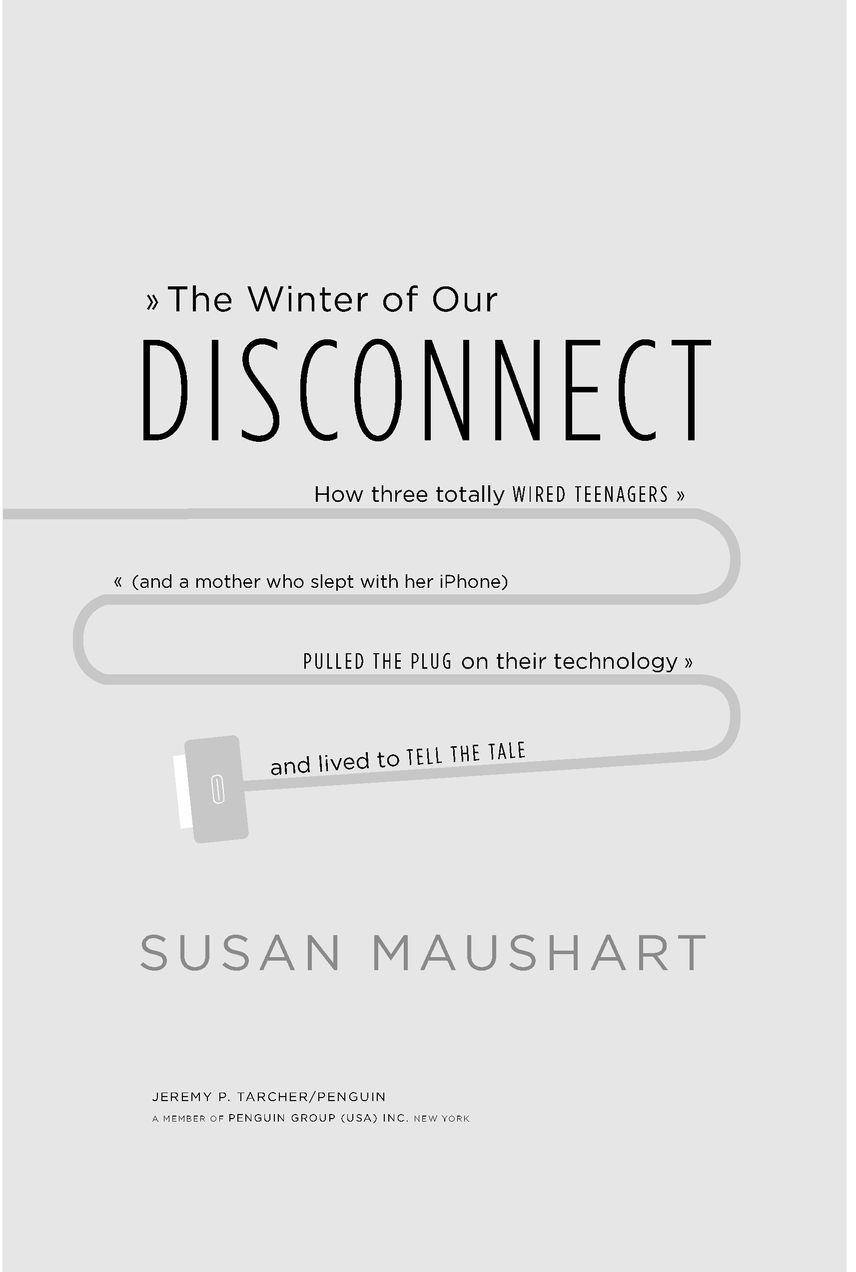Table of Contents
ALSO BY SUSAN MAUSHART
Sort of a Place Like Home
The Mask of Motherhood
Wifework: What Marriage Really Means
for Women
What Women Want Next
For Christine L. Nystrom
and
Neil Postman (1931-2003)
I would like to extend thanks to the Institute of Advanced Studies at the University of Western Australia, which provided a techno-haven for writing this book.
Introduction
Raising three teenagers as a single parent is no Contiki cruise at the best of times. But when I decided we should all set sail for a six-month screen-free adventure, it suddenly came closer to The Caine Mutiny, with me in the Bogart role.
There were lots of reasons why we pulled the plug on our electronic media ... or, I should say, why I did, because heaven knows my children would have sooner volunteered to go without food, water, or hair products. At ages fourteen, fifteen, and eighteen, my daughters and my son dont use media. They inhabit media. And they do so exactly as fish inhabit a pond. Gracefully. Unblinkingly. And utterly without consciousness or curiosity as to how they got there.
They dont remember a time before e-mail, or instant messaging, or Google. Even the media of their own childhoodVHS and dial-up, Nintendo 64 and cordful phonesthey regard as relics, as quaint as inkwells. They collectively refer to civilization pre- high-definition flat screen as the black and white days.
My kidslike yours, Im guessingare part of a generation that cut its teeth, literally and figuratively, on a keyboard, learning to say puter along with Mama, juice, and Now! Theyre kids whove had cell phones and wireless Internet longer than theyve had molars. Who multitask their schoolwork alongside five or six other electronic inputs, to the syncopated beat of the Instant Messenger pulsing insistently like some distant tribal tom-tom.
Wait a minute. Did I say they do their schoolwork like that? Correction. They do their life like that.
When my children laugh, they dont say ha ha. They say LOL. In fact, they conjugate it. (LOL at this picture before I Photoshopped your nose, Mom!) They download movies and TV shows as casually as you or I might switch on the radio. And when I remind them piracy is a crime, they look at one another and go LOL. (Aargh, me hearty! someone adds, as if to an imaginary parrot, and they LOL again, louder this time.) These are kids who shrug when they lose their iPods, with all five thousand tunes and Lord-knows-what in the way of video clips, feature films, and TV shows (like, who watches TV on a television anymore?). Theres plenty more where that came from, their attitude says. And the most infuriating thing of all? Theyre right. The digital content that powers their world, like matter itself, can never truly be destroyed. Like the Magic Pudding of Australian legend, its a dessert bar that never runs out of cheesecake.
Theres so much thats wonderful, and at the same time nauseating, about that.
The Winter of Our Disconnectaka The Experiment (as we all eventually came to call it)was in some ways an accident waiting to happen. Over a period of years, I watched and worried as our media began to function as a force field separating my children from what my son, only half ironically, called RL (Real Life). But to be honest, the teenagers werent the only ones with dependency issues. Although a relatively recent arrival to the global village, Id been known to abuse information too. (Sneaking my iPhone into the toilet? Did I have no self-respect?) As a journalist, it was easy to hide my habit, but deep down I knew I was hooked.
The Winter of Our Disconnect started out as a kind of purge. It ended up as so much more. Long story short: Our digital detox messed with our heads, our hearts, and our homework. It changed the way we ate and the way we slept, the way we friended, fought, planned, and played. It altered the very taste and texture of our family life. Hell, it even altered the mouthfeel. In the end, our familys self-imposed exile from the Information Age changed our lives indeliblyand infinitely for the better. This book is our travel log, our apologia, our Pilgrims Progress slash Walden Pond slash Lonely Planet Guide to Google-free Living.
At the simplest level, The Winter of Our Disconnect is the story of how one highly idiosyncratic family survived six months of wandering through the desert, digitally speaking, and the lessons we learned about ourselves and our technology along the way. At the same time, our story is a channel, if youll excuse the expression, to a wider viewinto the impact of new media on the lives of families, into the very heart of the meaning of home.
Only connect, implored E. M. Forster in his acclaimed novel Howards End, published a century ago. It must have seemed like such a good idea at the time. In 1910, the global village was still farmland. The telephone had only recently outgrown the ridicule that first greeted it. The first commercial radio station was still a world war away. It had been a scant sixty years since the debut of the telegraph. (What hath God wrought? inventor Samuel F. B. Morse brooded morosely in the worlds first text message.)
Ninety-nine years and one trillion Web pages later, only connect is a goal we have achieved with a vengeance. So much so that our biggest challenge today may be finding the moral courage to log off.
Today, some 93 percent of teenagers are online and 75 percent use cell phones, according to 2010 figures from the Pew Internet & American Life Project. Marketing data show 92 percent of teens own an iPod or MP3 player, while upward of two-thirds own their own computer (and access to one at home is near-universal). But the most provocative statistics are those that show how intensely our children interact with their media. In a large-scale study of young people who use media, conducted in 2005ancient history alreadyup to a third told the Kaiser Family Foundation they were using multiple electronic devices simultaneously most of the time. Researchers calculated that that meant the average American teenager was spending 8.5 hours a day in some form of mass-mediated interaction. And because media use in families is directly correlated with income, the figures were higher still in households at the more affluent end of the socioeconomic spectrum, and where parents were more highly educated.
By 2010, when Kaiser updated the data, the media bubble continued to swell. Kids aged eight to eighteen had now increased their screen time by more than an hour and a quarter a day, from six hours, twenty-one minutes to seven hours, thirty-eight minutesor the equivalent of an average working day, seven days a week. When multitasking was factored into the equation, the figure distended even further: to nearly eleven hours of what researchers now call exposure. Add time spent texting and talking on cell phoneswhich the Kaiser folks did not even define as mediaand the picture gets downright radioactive.
For Generation M, as the Kaiser report dubbed these eight- to eighteen-year-olds, media use is not an activitylike exercise, or playing Monopoly, or bickering with your brother in the backseat. Its an environment: pervasive, invisible, shrink-wrapped around pretty much everything kids do and say and think. How adaptive an environment is the questionand the answer, not surprisingly, seems to depend entirely on whom you ask. The Pew Project found that, among teens, 88 percent are convinced that technology makes their lives easier. A decidedly more ambivalent 69 percent of parents say the samealthough two-thirds also make some effort to regulate their childrens use of media in some way (rules about safe sites, file sharing, time use, etc.).


